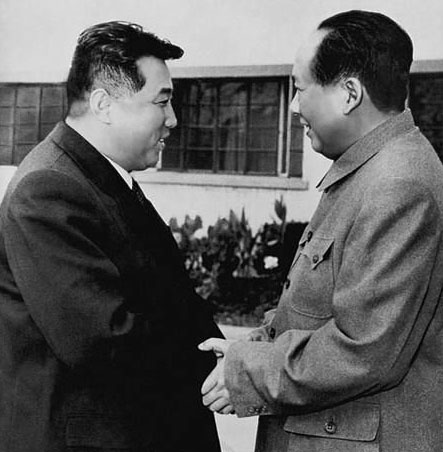Special to WorldTribune.com
 By Donald Kirk
By Donald Kirk
Advocates of a “peace treaty” with North Korea believe, unanimously, that such a treaty would serve some real purpose other than provide the North with ammunition for withdrawal of U.S. forces from South Korea and closure of U.S. bases.
The slightest scrutiny of history should make painfully clear that the North would violate the treaty whenever, however, it wished, but the treaty crowd talks as if North Korea would observe it without question. For sure, they believe, the Korean War would be over.

It would be pointless to argue that a war is over when the shooting has stopped and the line drawn between combatants as agreed on in the armistice signed at Panmunjom on July 27, 1953. However, it should not be pointless, in the run-up to the 69th anniversary of the North Korean invasion on June 25, to note that the North has repeatedly said the armistice was no longer valid.
North Korea, and its benefactor China, have long since refused to participate in meetings of the military armistice commission at Panmunjom.
So why is it that advocates of a peace treaty persist in thinking that North Korea, for any pretext, would not ignore the terms of any treaty and then withdraw altogether? Can they not imagine how easily the North would claim the U.S. and South Korea had violated the treaty so terribly it was no longer a binding document? (Oh, that’s right, these same people would hold the Americans responsible for all perceived complaints.)
But before getting to that stage, talks for a peace treaty would be so tendentious as to make the emergence of a document acceptable for the signatories of all the powers almost impossible. For starters, what would be the role of South Korea, whose war-time president, Syngman Rhee, refused to join in the talks, much less sign the armistice?
President Moon Jae-In has been outspoken in calling for a treaty or at least an end-of-war document as if we didn’t already know the war was over. Presumably the South would have to join in the talks while the North tried to place the South in a secondary role in keeping with the view that South Korea was a U.S.-occupied “puppet.”
Then again, what about others who might join in? Japan and the Soviet Union also played vital roles in the Korean War, the Russians providing MiG fighters, tanks and much else while Soviet pilots were in the skies battling Americans.
Japan, vanquished in the Pacific War that ended five years before the North Korean invasion, served as a massive rear base from which planes flew on bombing missions over the North and U.S. troops and supplies deployed to the South.
Then there’s the question of the United Nations Command, established almost immediately after the invasion when the Soviet Union boycotted the U.N. session that authorized it.
The fact is that 16 nations fought under the UNC flag. North Korea and its allies, China and Russia, might object, but the UNC should also have a place at the table.
Now let’s get to the actual peace talks. South Korea and the U.S. would be well within their rights to accuse North Korea of having ignited the whole damn war by invading the South in the first place.
South Korea and the U.S. could also point out that Chinese troops had invaded from the North to save the neck of the North Korean leader, Kim Il-Sung. He’d been begging China’s Mao Zedong and the Soviet Union’s Joseph Stalin for the arms needed to take over the South but was in full flight from the Americans and South Koreans before the Chinese poured in.
For many years, pro-North scholars accepted the North Korean version. Surely, these charlatans wrote, South Korea had invited attack by tens of thousands of North Korean troops in minor incidents along the 38th parallel, the North-South line agreed on by the U.S. and Soviet Union after the defeat of the Japanese.
It wasn’t until the demise of the Soviet empire nearly 30 years ago that the Kremlin produced documents verifying Kim’s pleas more than a year earlier to support his conquest of the South, whose citizens he boasted would welcome his invading liberators.
While raising the issue of who started that terrible war, U.S. and South Korean negotiators should demand the North apologize. Kim Il-Sung’s grandson, Kim Jong-Un, would then no doubt pull out of the talks, but so what? Unless North Korea acknowledges its guilt in opening the war, and then says sorry about that, there can be no enduring peace.
Donald Kirk has been covering the confrontation on the Korean peninsula, and the region, for decades.
